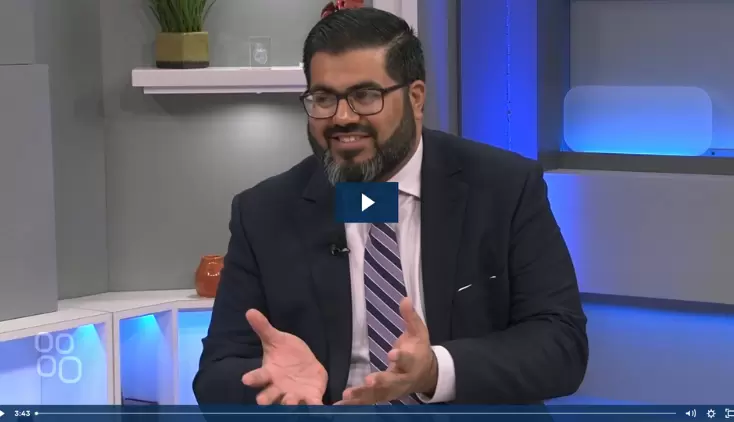Clinical Research & Data, AMI Cardiogenic Shock, Surgical Applications
Renal Recovery in HFCS with Impella 5.5® with SmartAssist®
Rohan Goswami, MD, provides case-based discussions and real-world examples of the impact of Impella 5.5 with SmartAssist on renal recovery in patients with heart failure cardiogenic shock (HFCS). Dr. Goswami is a transplant cardiologist at Mayo Clinic in Jacksonville, FL and gave this virtual presentation at HFSA 2022.
Dr. Goswami poses the question: How do we use the Impella 5.5 with SmartAssist and how does it impact patient outcome? To answer this, he presents four components of temporary mechanical support in heart failure: LV offloading, cardiorenal optimization, cardiopulmonary decongestion and increased physical capacity. “Compared to traditional methods that we use currently, such as balloon pump or dual inotrope support strategies,” Dr. Goswami explains, “we have seen a significant improvement in outcomes at our institutions, especially in advanced heart failure patients that have been supported with the Impella®.”
Dr. Goswami discusses studies that have shown mortality benefit with optimization of patients with mechanical support and explains how we can look at markers and predictors of renal recovery. He describes the artificial intelligence (AI)-based cardiogenic shock system they’ve implemented for early recognition and team-based intervention in shock patients.
“Patients are able to go to transplant with better kidneys, because of the Impella support,” Dr. Goswami explains. “We’re seeing a trend in patients not requiring renal replacement therapy, not requiring a significant amount of right ventricular support after transplantation… I think in our cohort of these 31 patients, the 456-day median follow-up, all the way up to almost 700 days without needing renal replacement therapy, is significant and I think helps us maybe understand potential implication of this therapy long-term in patients.”
“I think it’s important for us to realize what the Impella allows us to do while patients are supported,” Dr. Goswami concludes, highlighting that it allows for LV unloading, optimization of renal offloading, and recovery of renal function without concern for hemolytic injury and with increased duration of support. All this while potentially avoiding dual organ transplantation, liberating from renal replacement therapy, and minimizing vasoactive support in chronic kidney disease.
“This therapy helps us understand the future of our field and how we can move forward in allowing patients to have other options that they may not have had in the past.”
To learn more about the Impella platform of heart pumps, including important risk and safety information associated with the use of the devices, please visit: www.heartrecovery.com/isi
IMP-3826


